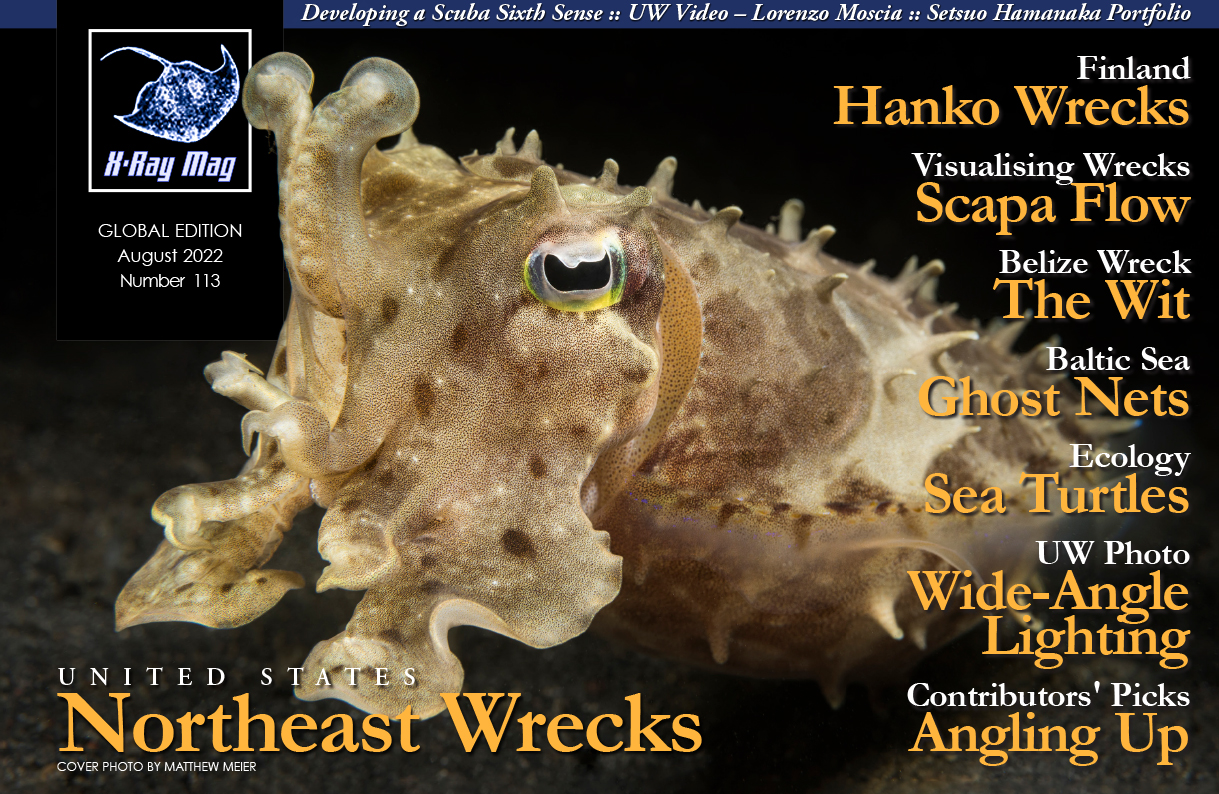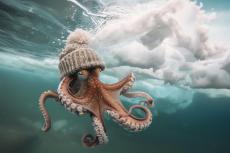A term that has crept into discussions of scuba diving safety comparatively recently is “situational awareness,” a concept that originally arose in the field of aviation but has now been extended to a wide range of human activities, from medicine and motoring to personal security and law enforcement. Simon Pridmore offers insights and advice on safe diving with a scuba sixth sense.
Contributed by
— This article is adapted from the chapter, “Situational Awareness and Developing Instincts,” in Simon Pridmore’s book Scuba Exceptional: Becoming the Best Diver You Can Be.
Situational awareness involves being aware of elements in the environment around you, understanding what is happening in the moment and assessing what could happen. Somebody with a good sense of situational awareness might be described as having a “feel” or a “sixth sense” for how situations, people and incidents will play out.
As an example, I often tell the story of a pair of experienced divers who watch powerlessly from a distance as a group of ascending divers drift unknowingly into a patch of water where whirlpools on the surface are generating a downcurrent. The divers’ bubbles, travelling almost horizontally ahead of them as they drift, are being caught and catapulted down into the depths and it is clear to the observing couple that the same fate will befall the divers if they do not take some form of evasive action.
The group remains unaware and is picked up and swept down into the depths. Eventually, the downcurrent becomes weaker and relaxes its grip, allowing the divers to begin a new ascent out in blue water. They all survive the dive, nobody runs out of air or panics, but, back on the boat, they are all shocked and scared. They all agree that “it just came out of nowhere.”
In fact, of course, the situation did not come out of nowhere. It was there, but none of the divers saw it coming because they were not watching out for it.
The observers, however, were fully aware of the various elements in play: unaware divers, moving water, bubbles and downcurrent. They could see the situation clearly and could predict what was going to happen. They were exhibiting situational awareness. The divers who got into trouble were not.
Developing situational awareness
How do you develop situational awareness as a scuba diver?
When you first start to scuba dive, you do not pay much attention to what is going on around you during a dive because you are too busy just staying alive. You are trying to remember all the things you have been taught and all the advice you have been given. Even so, with every dive you do, you are unconsciously developing valuable experience.
Soon, you reach a point where you have mastered the essential skills and now have room in your mind to consider other things apart from your own survival. The more you dive, the faster you should reach this point.
However, situational awareness will not then develop unaided. The group of divers in my story were not beginners but they showed no sign of being cognisant of their situation at all.
Building situational awareness takes work. Once you get to the stage where you are feeling more comfortable in the water, your fears have been replaced by wonder and confidence is seeping through your veins instead of adrenaline, resist the temptation to relax and switch your brain off.
Instead, always keep your mind on the dive. Concentrate at all times on what is happening underwater. Avoid letting your thoughts drift away to other things that are unrelated to the specific dive that you are doing now. Instead, visualise yourself as an operational controller with a number of screens in front of you, which are displaying different aspects of the dive.
Cycling through multiple screens
One screen is showing your state of mind, a second is showing your gauges, a third screen is showing a movie of you as you swim along. Then, there are other screens that show the fish life on the reef, the route you are taking, the water conditions and the weather on the surface. Still more screens are monitoring your fellow divers, showing their location, behaviour, breathing rate and finning style.
As you dive, keep your mind cycling through the screens. First, watch the fish swimming around you for a few minutes; then, check your gauges. Next, take note of a large rock you have just swum past. Will this make a good waypoint on the route back? Then, look around at your dive team. Is everyone still there? Is anyone lagging behind? Is anyone breathing faster than you would expect, given the conditions?
Then, give a little thought to your own status. Make sure that your fins are not brushing against the seabed, and you are maintaining a nice, long, slow breathing rate. Are you okay? Are you thinking straight? Do you sense any narcosis? Then, go back to looking at the fish. Is that a moray eel poking its head out from under that stone? Maybe your buddy would like to take a photograph of it?
Eyeing the whole and its parts
And so on. You keep your mind on the dive as a whole by focussing your attention on specific aspects of it all the time. Of course, you do not have to create a sequence in your mind. Nor does any of this need to distract from the fun of diving. The cycling through the screens is going on in the back of your mind.
Think of what you do when you drive a car. You keep an eye on your instruments, at the same time as you watch the road, at the same time as you pay attention to changing weather conditions. But you are still listening to the music on the sound system and chatting with your passengers. Maintaining situational awareness on a dive is a similar concept.
On different dives, you will find you give more attention to certain aspects of the dive than others. On the first dive in a new location, you will give more attention to your route and the landmarks. If you are diving with an inexperienced team, you will spend more time making sure they are not in difficulty.
Then again, if you are with trusted, capable buddies at a site you know well, in easy conditions, most of your time can be devoted to watching the marine life in all its glory and enjoying being at one with the ocean. But you never take your eyes off the other screens completely. You never know when the gremlins of the sea might come and bite you.
Even when you are diving with guides or instructors, do not devolve your responsibility for situational awareness to them. Instead, add them to your battery of screens. After a while, you will find that switching off your situational awareness is not even an option. Your scuba sixth sense will have become ingrained.






























